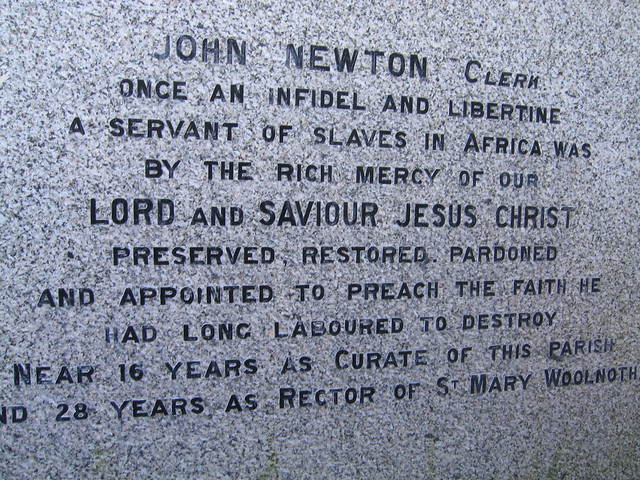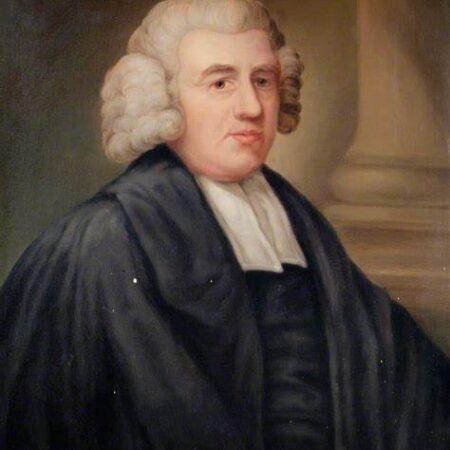
1748
“THE 10TH (that is, in the present style, the 21st) of March is a day much to be remembered by me; and I have never suffered it to pass wholly unnoticed since the year 1748: on that day the Lord sent from on high and delivered me out of deep waters.” John Newton wrote these words about fifteen years after his terrifying brush with death.

John Newton was the son of a naval man and a Christian mother. Her faith impressed him so much that at an age when most boys are more interested in kites and games than in religion, he fasted and prayed, seeking God. His mother died when he was seven. Ten years later, his father got him a position on a warship. Depressed at leaving England and his girlfriend, he deserted but was captured and traded to a slave ship.
On the slaver, Newton gave way to wicked impulses. Corrupted himself, he delighted in corrupting others. Godless sailors considered him the worst among them. Because he was rebellious and careless, he found himself “a slave of slaves” on the coast of Africa. His father paid a captain to rescue him.
The rescue ship, however, was in bad shape. One night Newton woke, hearing a crash. His cabin filled with water as the ship rocked in the midst of a raging storm. He was about to dart onto the deck when the captain called him to bring a knife. Another man rushed ahead of him and was swept overboard. When Newton reached the deck, he found that timbers had been ripped away. He joined other sailors who were pumping and bailing frantically. Fortunately their cargo of beeswax and other light material helped to keep them afloat. The sailors did all that they could, even stuffing clothes and bedding into leaks and nailing boards over them.
Later, bitterly cold and lashed to the wheel to steer the ship, Newton reflected on his life. He knew Christianity was true, but thought his sins were too great for God to forgive. When he heard that the ship was free of water, he took courage and began to pray and to think of Jesus. “I recollected his death: a death for sins not his own, but … for the sake of those who should put their trust in him.” On this day, 21 March 1748, he snatched a free moment to open a Bible. Through many days of storm, he read when he could, although the Captain muttered he ought to be thrown overboard like Jonah.
When the ship limped into port, Newton knew God had saved his soul. He had little understanding of the implications, however, and continued slaving. Although he was a kinder slaver than most, held worship services for his men, and kept them from blaspheming aboard his ship, the deaths of thousands of slaves would haunt him the rest of his life.
Six years later he recognized slavery was wrong and joined the abolitionists. He became a minister and the author of notable hymns, including “Glorious Things of Thee are Spoken,” “How Sweet the Name of Jesus Sounds,” and “Safely Through Another Week.” His most famous hymn, however, summarized his experience:
“Amazing grace, how sweet the sound that saved a wretch like me.
I once was lost but now am found, Was blind but now I see.”

Newton’s epitaph reads:
John Newton, clerk, once an infidel and libertine, a servant of slaves in Africa, was by the rich mercy of our Lord and Saviour Jesus Christ, preserved, restored, pardoned, and appointed to preach the faith he had long labored to destroy.
